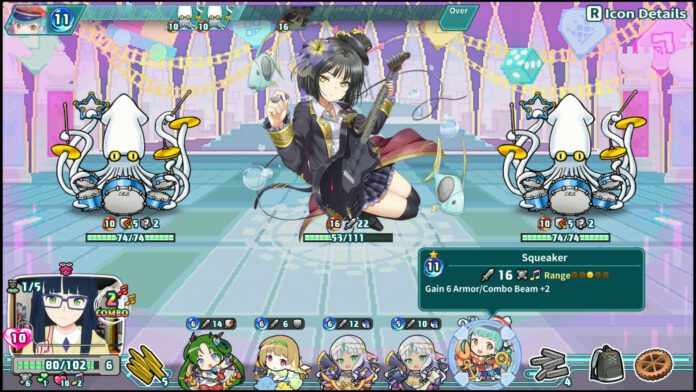REVIEW : Super Bullet Break (PC)
At the heart of Super, Bullet Break is a fundamental mismatch. It’s a roguelike, a genre defined by impermanence, plus a (microtransaction-free) gacha game, a genre defined by permanence. The purpose of a roguelike is the ephemeral nature of everything you pick up and the scenarios that occur as a result. Gacha games are all about collecting, constantly powering up your characters, and the connections you make with your favourite characters through that loop. (They’re also, all too often, about extracting exorbitant amounts of money from people precisely because of that connection and permanence, but I digress.) Super Bullet Break, for all its charm and intriguing ideas, wants to be both and fails miserably at both.
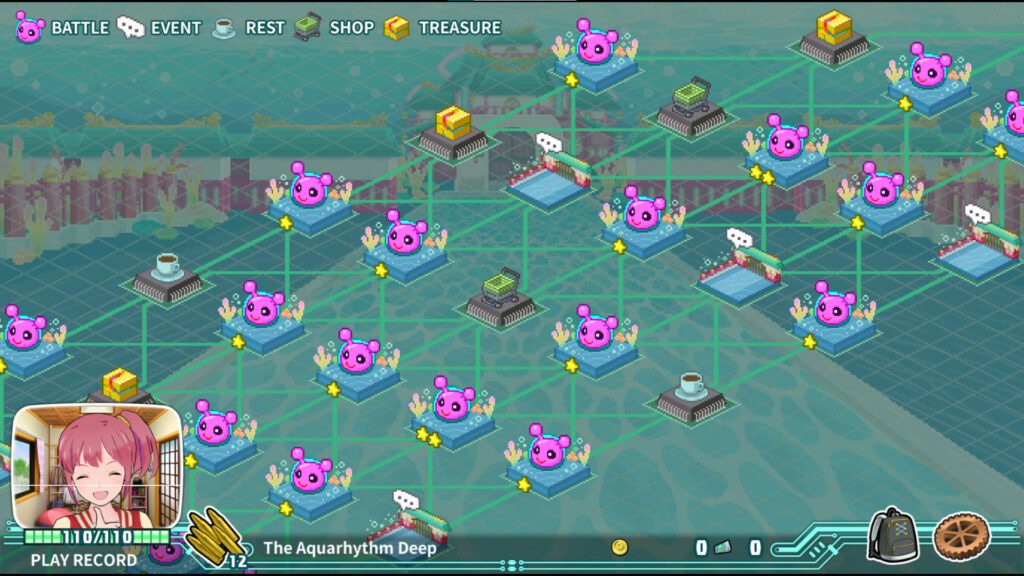
(Un)lucky draws
In its most basic form, Super Bullet Break is a deckbuilding roguelike set in a variety of game environments. A mysterious virus is causing all of these games to misbehave—and their characters to become self-aware in the process—and you’ve been tasked with investigating the problem. Naturally, by gathering these self-aware individuals (dubbed “bullets,” but in reality, they’re cards in a card-based game) and fighting your way to the conclusion of each map in turn-based battles.
The gacha component comes in the way you get new bullets: some drop as rewards at the end of regular encounters, but others come through mechanics that will be familiar to anyone who’s ever spent some time collecting heroes in something like Arknights or Fate/Grand Order: random pulls from a special vending machine, special rewards for in-game events, or period prize draws. The difference is that you’ll never have to spend real money or deal with “live service game” bullshit here, even if you wanted to. It’s all done with in-game currency accumulated throughout a run, as well as events that occur at random across the world rather than in real-time.
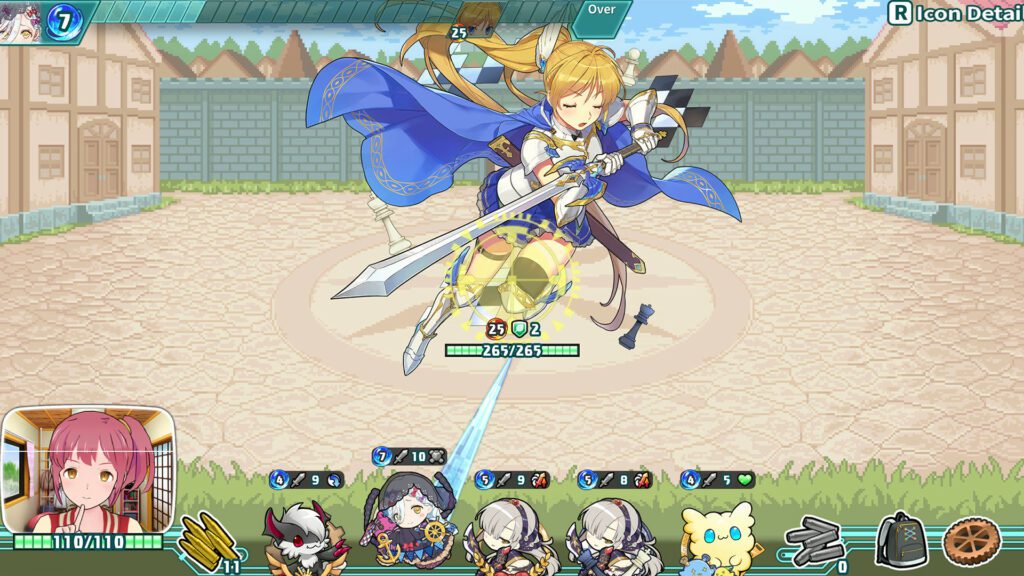
The other distinction is that, because it’s a roguelike, you lose everything you’ve accumulated at the end of each run, win or lose. This is when the incompatibility I noted earlier comes into play. Super Bullet Break’s bullets are superbly created, brimming with personality, frequently charming, frequently erotic, the type of archetypal gacha designs with which you should be able to connect. But you never get much of a chance because they’re gone practically as soon as you acquire them. Sure, you’ll find favourites that you’d like to see again in future runs, whether for their effects, designs, or both, but they’re always something borrowed, for the time being. There’s no actual feature of the collection, no permanence that makes the work (or purchase) of a gacha worthwhile.
To optimise or collect?
The card battle mechanism discourages any involvement with the gacha feature. As a general rule, you want your deck to be as short as possible in any deck-building game to enhance your odds of getting something excellent when you draw a new card. You also want cards that complement each other effectively, with decent synergy throughout the deck and, ideally, some variety. What you don’t want are cards that don’t match the plan, that take up space and are only useful when you don’t have anything else that goes well with them.
This is especially true for Super Bullet Break, which contains many card effects that, while incredibly imaginative and potentially quite powerful, are also extremely prescriptive: they have one, maybe two precise use cases and limited variety beyond those. Consider the effect “combo,” which is popular on cards from the rhythm game-themed level: each time you play such a card, you’ll grow a combo counter, and when it reaches a multiple of 10, you’ll deal a large splash of damage to a random adversary.
If you have a lot of cards with that effect, the cumulative effect can be enormous; if you only have one or two, they’ll be incredibly inefficient on their own, while also adding little value to the other cards in your deck. There’s also not much room for experimentation with those effects—you either have the cards that work together or you don’t.
As a result, success in the game boils down to assembling a tiny deck with great synergy and as little dead weight as possible. What about the gacha mechanics? Mostly deadweight. Even rare, strong bullets have little utility if they don’t fit in with the rest of your deck (and bullets can’t be readily removed).
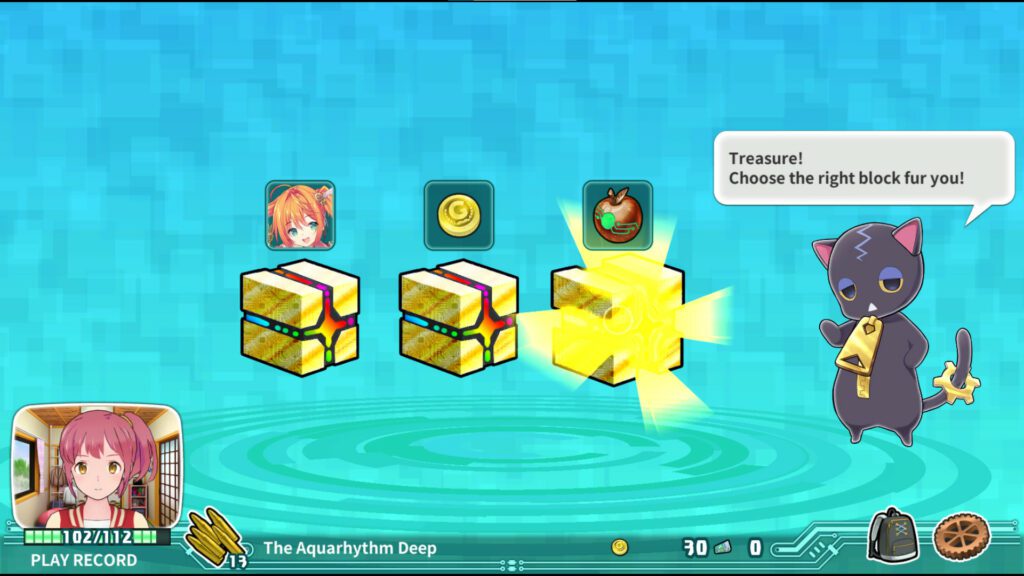
Luck will always play a factor, but the safer, more effective route is usually to avoid gacha and instead go for rewards from ordinary combat. They’re more likely to be useful (because they’re often part of the same in-game “set,” created around the same approach, whereas gachas draw from all sets), and if you get a bad draw, you may simply decline to pick anything up. “Gacha roguelike” sounds like an intriguing concept, but Super Bullet Break fails to reconcile too many contradictory elements.
A wealth of potential
That’s a shame because it has so much promise and amazing ideas in so many other areas. The story structure is a lot of fun: each level is a spoof of a classic game genre, from retro RPG to dating sim to rhythm game, with matching lively, bright character graphics. The game doesn’t change, but each world’s cards have a unique gimmick that riffs on the other genres: the combo effect I mentioned earlier comes from the rhythm game world; cards from the dating sim world have an effect that has a fun play on affection points, and there’s a shoot-’em-up world with drones as a key effect.
The fighting system, on the other hand, is a wonderful mash-up of turn-based RPG and card battle resource management. Turn-based systems with varying levels of delay after a turn aren’t uncommon, but Super Bullet Break adds a unique twist by connecting the cost of using cards to the turn structure. A timeline displays the number of “steps” (for lack of a better term) until each foe’s next turn, and each card you play consumes a certain number of those steps. Low-cost cards may only require two or three steps, allowing you to use a large number of them before your opponent’s turn, whereas high-cost cards often unleash a massive cannon at the expense of limiting your ability to conduct other actions.
And, because everything you do before the next enemy assault is considered a single turn, cards with one-turn effects—of which there are many—can be immensely effective when utilised wisely.
From that foundation, Super Bullet Break allows for a welcome level of strategic play, especially if you can obtain the appropriate pieces to assemble a good deck. Each enemy’s next move is always displayed, allowing you to plan your counterattack accordingly, whether it’s stacking up the defence for their large hitting blows, minimising their efforts to buff themselves, or finding safe times to lay the groundwork for your onslaught. A smart plan is also essential because a single mistake can easily lead to you being forced into a corner that is impossible to escape, if not wiped out in a single turn.
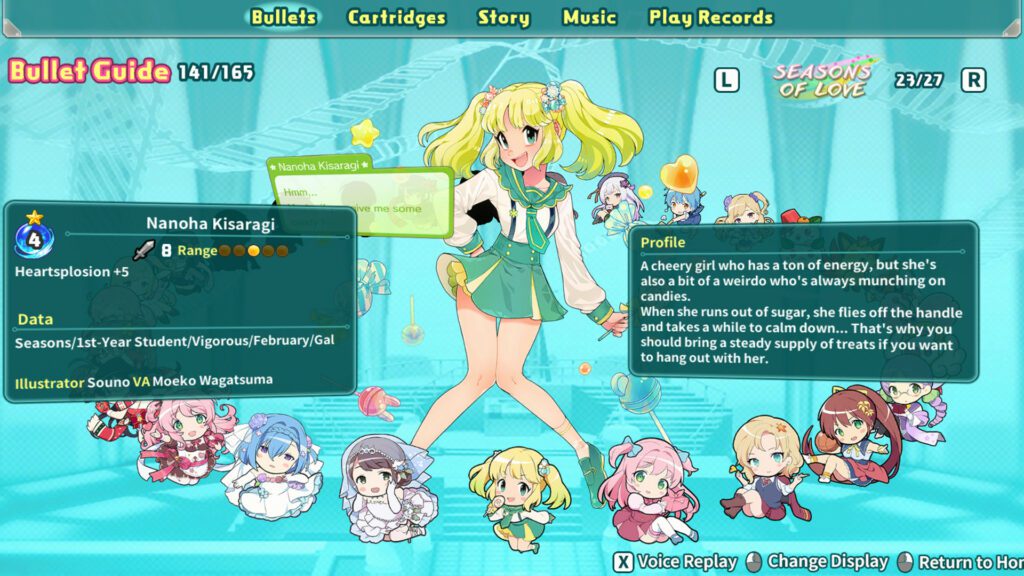
Being a roguelike, luck still plays a significant role—not it’s uncommon to find your progress halted by nothing more than a streak of bad draws. It’s a system that’s perhaps better suited to something less random and fleeting, where you can focus on fine-tuning your deck and strategy. Or, at the very least, a roguelike with less unstable balance. Aside from that, it’s a fantastic fighting system: basic at first glance, but with enough depth once you start investigating its nuances. And that’s why I’m so torn. Super Bullet Break is a fascinating game in so many ways, a mash-up of several ideas and inspirations with a few strokes of unique genius thrown in. The non-exploitative spin on gacha games, replete with all the fantastic characters and gorgeous artwork, is what makes those free-to-play games so popular (and profitable).

